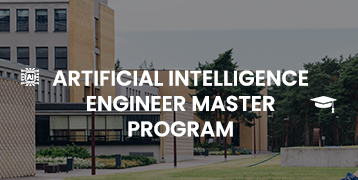
Project Management Professionals are imperative in industry. The demand is in terms of the skill requirements changes between different industries and geographies. In the 2014 survey report by PMI, there will be huge opportunities for practitioners of Project Management. Based on PMP Certification and PMP Training the companies recruit people from various cultural backgrounds, the scope for project managers with a standardized set of skills increases. These project managers would be expected to undertake projects on system reorganizations, turn strategic vision into tangible goals, and ensure effective and agreed outcomes, while balancing various project constraints.PMP Certification and PMP Training certification is an industry identified credential for project managers. PMP considers the experience, education, skill and competency required to lead and direct projects.

project management steps:
Initiation
The initial step of any project involves defining the project. Therefore,the name the stakeholders and find out if they are committed to the project. Then, determine if the project is even feasible. The complete a Feasibility Study or write up a Business Case Document.
The stakeholders deciding to move forward with the project move on to the Planning stage. Otherwise, search for ways to salvage the project and start the initiation phase over.
Planning
During the second step, stakeholders sit down to create an outline of the work to be performed. The project manager works based on.
- Costs
- Sequence of events
- Schedule and deadlines
- Communication with stakeholders
- Resources and supplies to be reserved or purchased
- Manpower needed
- Financing
- Risk
There is one should pay extra attention to risk management. Because you don’t want anything to delay the schedule, the planning stage needs stakeholders to identify and analyze potential risks and determine the mitigation process and plan the necessary response.
It should also depend on the industry, many projects may require the completion of GANTT charts and milestone charts to help with the planning process, as well.
Execution
The third and fourth steps occur simultaneously. Step 3 refers to the process of actually executing the plan. It might include allocating resources, conducting meetings, communicating updates, and delivering performance reports.
In this stage, the team members receive their list of responsibilities for the project. Therefore, project managers should communicate these to each team member, making sure that each person understands what is expected of them to achieve the goals of the project.
Monitoring and Controlling
In this stage, complete the process of monitoring and controlling in tandem with the execution. This process has tracking progress and comparing it to the plan. That way, adjustments to the plan can be made as needed.
In this stage, conducting quality control checks throughout the process.. As a result, you guarantee that everything is in order and follows the necessary standards or guidelines for the specific industry.
Closure
Finally, deliver the product to the client and get their approval. when the project finished, other things that you should do include:
- Return rented resources;
- Provide recognition and rewards to team members; and
- Terminate contracts with contractors.
In the end, take the time to evaluate the project’s success. This is the most noteworthy step because it facilitates the process in the future.
Benefits of doing a PMP certification
Adds value to the resume
- Nowadays there are several professional certifications that you can pursue throughout your career. But all of those certifications, PMP certification is the most valuable certificate programmed. Interviewers or hiring peoples looking to fill in the position of project manager understand this.
- In present project management jobs are high in demand. So maximum people apply for these jobs. This processing time and resource consuming for the company to interview and assess the potential of all the applicants. As such, they like to filter out as many people as possible before the project management interview process. This is where the PMP certification proves beneficial as it is one of the most objective ways in which one can remove the candidates.
Provides Industry recognition
- PMP certification is a universally recognized certificate. Many certification programmers focus only on a specific geography or domain. PMP is in global and works with any industry and in any location. In professional background and industry, you can gain more importance by adding the certification to your resume.
- The companies easily to recognize that certified managers are better at completing the project on time and within the budget.
- If you are just starting out your career in project management, then PMP certification will make up for the lack of experience. Say you are experienced and have a proven track record of your work. The PMBOK certification can take you to the next level in your company.
Helps you learn important skills
- So many project managers out there in the job market. The better way to do it than by becoming PMP certification. It makes your resume more important to companies. PMBOK certification shows you important skills to excel in your career.
- PMP certification is high standards. It is not easy to pass this exam without extensive preparation. First, it requires you to master the practical application of the material. Attaining PMP credentials will include learning several hard and soft skills. It provides the knowledge of fundamental project management processes tools & techniques and methodologies. And also, it exposes you to best practices and current trends in project management. You can learn new methods and techniques in project management activities.
Contributes to higher income

- The biggest draw of PMP Certification and PMP Training is the higher salary it can taking to the project managers. In many industries, the average salary of certified project managers is considerably higher. In recent PMI survey states that the average median salary for a project manager with certification is $ 1,08,000 and the median income for a non-certified project manager is only $91,000.
- Another survey told the certified project managers to earn almost 20% more than the non-certified ones. This difference can be seen all over the world including in Middle East countries such as Saudi Arabia and the United Arab Emirates
- PMP has consistently in the highest-paid of IT certification and it indicates that PMP salaries will only continue to grow in the future.
- Apart from higher-income and improves your job security. So many companies value the core competencies learned through certification during downtime.
Provides networking opportunities
- PMI currently has about 773,840 active PMP certification holders across in the world. When you sign up as a PMI member, you become part of that club. PMI arranges frequent meetings for members in major cities across the world. These meetings are also arranged to help the members earn Professional Development Units (PDUs). These units are needed to fulfill Continuous Credential Requirements, also called as CCRs.
- The benefits of such networking sessions are many. In these meetings, one can get to know about any new job opportunities that are shared by people who value this certification. PMI meetings allot specific time to advertise such jobs. And there are other online and offline communities through which PMPs interact with each other. These communities help in building professional networks.











